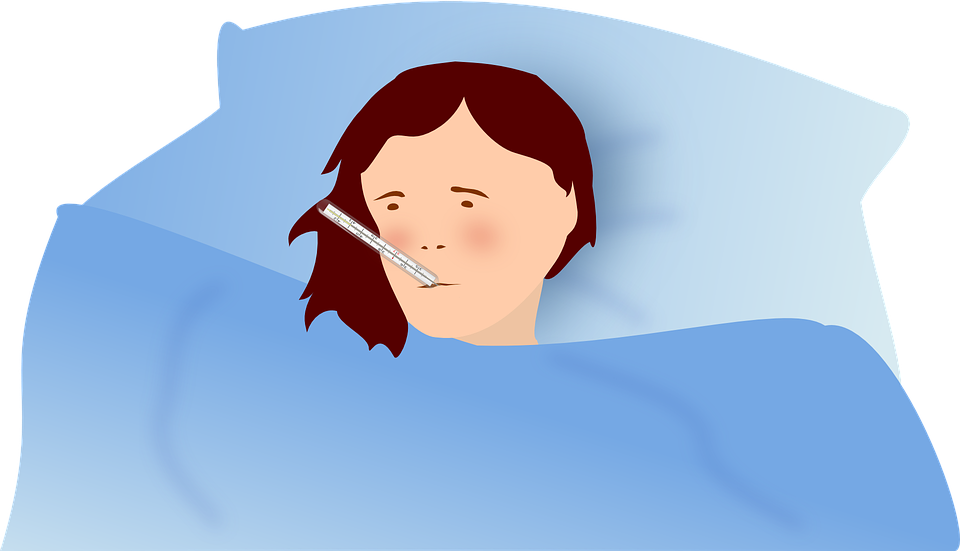 |
| Protect Yourself Flu |
Here are five simple steps you can take to begin the process of preparation for mediation
Common symptoms of influenza (flu) include fever, dry cough, headache, muscle and joint pain, sore throat and runny nose.
Every year, millions of people get the flu. Most recover within a week, but unfortunately for some people, the flu can be fatal.
Seasonal flu epidemics usually occur in the fall and late winter, so we can predict them and prepare accordingly.
In the tropics, influenza can occur year-round, making it more prevalent, but prevention is still important.
That way you can save yourself and the people around you.
1. Get vaccinated
The annual vaccine is one of the most effective ways to protect yourself from the flu and serious complications.
Wash your hands regularly At any stage of pregnancy, vaccination is especially important for pregnant women. It is also important for children 6 months to 5 years old, the elderly, people with chronic medical conditions and health workers. Feeling of discomfort or fever after vaccination is a completely normal and natural reaction, and usually lasts only a day or two. Clean hands are protected against many infections, including the flu. An easy way to keep yourself and your family healthy is to keep your hands clean.
2. Wash your hands regularly
Wash your hands regularly with soap and running water and dry thoroughly with a used towel. If you can't find soap or water, you can use alcohol-based handbags. Remember - it only takes a couple of times to wash your hands properly in the song Happy Birthday.
Avoid touching your eyes, nose and mouth
Germs enter your body through the nose, eyes and mouth.
You can't control the way you breathe, but you can reduce the risk of infection by staying away from your face.
If you need to touch your eyes, nose or mouth, do so with a clean tissue, or wash your hands first.
3. being around sick people
The flu is a contagious disease. It spreads easily to crowded places such as schools and nursing homes and public programs such as public transport.
When an infected person coughs or sneezes, the droplets containing the virus can spread up to a meter, and infect others who breathe it.
4. Stay home if you are not feeling well
If you are sick with the flu, being around others puts them at risk.This is especially true for people with chronic medical conditions such as cancer, heart disease and HIV.
Immediate isolation can stop the spread of the flu and save lives.
5. Vaccinate
- Take time to get the flu vaccine. The CDC recommends an annual seasonal flu vaccine as a first and foremost measure to prevent seasonal flu.
- Although there are many different flu viruses, the flu vaccine protects against three major strains of the flu, with research showing that it will cause the most illness during the flu season.
- The vaccine can protect you from all three of these viruses, or it can make your illness milder if you get a different flu virus.
- People at risk of serious flu complications include young children, pregnant women, people with long-term health problems such as asthma, diabetes or heart or lung disease, and people 65 years of age or older. Vaccination is very important.
- People who live with or care for those at high risk should also get the flu vaccine.
6. Prevent germs
- Wash your hands often with soap and water, especially after coughing or sneezing. Alcohol based hand cleaners are also effective.
- Take daily precautions.
- When you cough or sneeze, cover your nose and mouth with tissue. After using the tissue, throw it in the trash.
- Try to avoid close contact with sick people.
- If you have the flu, the CDC recommends that you stay home from work or school and stay out of contact with others to avoid infection.
- Avoid touching your eyes, nose or mouth. This is how germs spread.
7. Antiviral drugs
- Give them antiviral medication if your doctor recommends them.
- If you have the flu, antiviral drugs are an important treatment..
- Antiviral drugs are prescription drugs (pills, liquids or analgesics) that fight the flu by stopping the flu virus from reproducing in your body.
- Antiviral drugs can treat your illness and make you feel better. They can also avoid serious flu complications. This can be especially important for high-risk individuals.
- If you become ill, seek treatment immediately. Later (within 2 days of symptoms) antiviral drugs work better.
- Flu-like symptoms include fever (usually more), headache, extreme fatigue, dry cough, sore throat, runny or stuffy nose, and muscle aches.

0 Comments